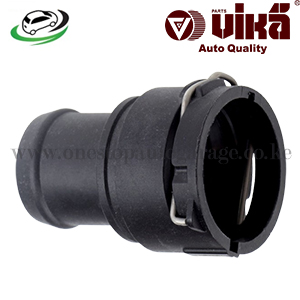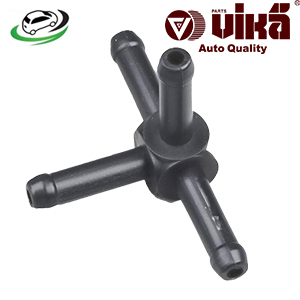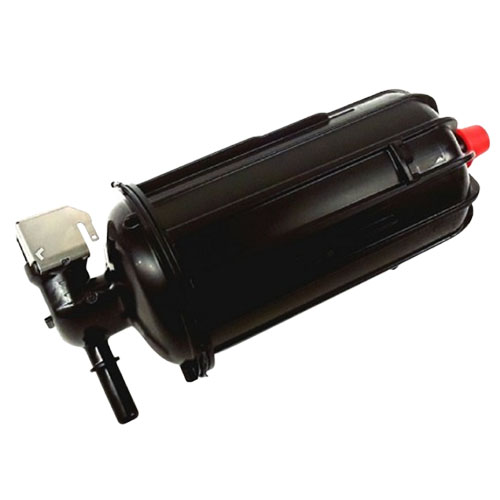-13%
Get Fuel Filter Audi B8 A4/ B8 A5/ B8 RS5/ B8 S4/ B8 S5 8K0201511A in Kenya
The fuel filter is a critical component of a vehicle’s fuel system, designed to remove impurities and contaminants from the fuel before it reaches the engine. This ensures that only clean fuel is delivered to the engine, which is essential for maintaining optimal performance, efficiency, and longevity. Understanding the design, function, benefits, common issues, and maintenance of the fuel filter is crucial for the reliable operation of your vehicle.
Function and Importance
- Contaminant Removal: The primary function of the fuel filter is to trap and remove contaminants such as dirt, rust, and debris from the fuel. These impurities can come from the fuel itself or the fuel tank. Removing these particles prevents them from reaching the engine and causing damage.
- Engine Protection: By filtering out contaminants, the fuel filter helps protect sensitive engine components, such as fuel injectors, pumps, and combustion chambers. Contaminants can cause abrasion, clogging, or corrosion, leading to reduced engine performance and increased maintenance costs.
- Fuel Efficiency: A clean fuel filter ensures that the engine receives a consistent and clean fuel supply, which is essential for optimal combustion. This helps maintain fuel efficiency, leading to better mileage and reduced fuel consumption.
- Performance Maintenance: The fuel filter plays a role in maintaining engine performance by ensuring that the fuel system operates smoothly. A clogged or dirty filter can lead to issues such as reduced power, rough idling, or difficulty starting the engine.
Design and Construction
- Materials:
- Filter Media: Fuel filters are typically made with filter media that can vary depending on the design and application. Common materials include paper, synthetic fibers, and metal mesh. The filter media is designed to trap contaminants while allowing fuel to flow through.
- Housing: The filter housing is usually made from durable materials such as metal or plastic. It provides structural support for the filter media and helps maintain the filter’s shape and integrity under pressure.
- Design:
- Cartridge Filters: These are commonly used in many vehicles and consist of a replaceable filter element housed within a cylindrical or rectangular cartridge. The cartridge is typically installed in a canister or housing that is bolted or screwed onto the fuel line.
- Inline Filters: Inline fuel filters are installed directly in the fuel line between the fuel tank and the engine. They are usually cylindrical and have fittings on both ends for easy installation.
- Integrated Filters: Some modern vehicles have fuel filters integrated into the fuel pump assembly or the fuel tank. These filters are designed to be replaced along with the fuel pump or tank.
- Filtration Process:
- Pre-Filter: Some fuel filters have a pre-filter stage that removes larger particles before they reach the main filter media. This helps extend the life of the main filter and improve overall filtration efficiency.
- Primary Filter: The primary filter stage captures finer particles and contaminants, ensuring that only clean fuel reaches the engine. The filter media is designed to trap particles of various sizes, depending on the filter’s specifications.
Benefits
- Enhanced Engine Performance: A clean fuel filter ensures that the engine receives a steady and clean fuel supply, which contributes to smooth operation, improved acceleration, and consistent power delivery.
- Improved Fuel Efficiency: By preventing contaminants from reaching the engine, the fuel filter helps maintain optimal fuel combustion, leading to better fuel efficiency and reduced fuel consumption.
- Extended Engine Life: Protecting the engine from contaminants helps reduce wear and tear on sensitive components such as fuel injectors and pumps. This can lead to a longer engine lifespan and lower maintenance costs.
- Reduced Emissions: Efficient combustion facilitated by a clean fuel filter helps reduce exhaust emissions, contributing to a cleaner environment and compliance with emission standards.
- Preventing Clogs and Failures: A functioning fuel filter prevents clogging of the fuel injectors and other components, reducing the risk of fuel system failures and costly repairs.
Common Issues
- Clogging:
- Contaminant Build-Up: Over time, the fuel filter can become clogged with dirt, rust, and other contaminants. A clogged filter restricts fuel flow and can lead to reduced engine performance and efficiency.
- Reduced Fuel Flow: A significant clog can limit the amount of fuel reaching the engine, causing symptoms such as poor acceleration, rough idling, or difficulty starting.
- Fuel Filter Damage:
- Physical Damage: The fuel filter can be damaged by physical impacts, such as road debris or accidents. Damage can lead to leaks or reduced filtration effectiveness.
- Corrosion: Exposure to moisture and corrosive substances can cause the filter housing or filter media to corrode, compromising its performance.
- Filter Contamination:
- Water Contamination: Water can enter the fuel system and mix with the fuel, leading to contamination of the filter. Water contamination can cause rust and reduce the filter’s effectiveness.
- Fuel Quality: Poor-quality or contaminated fuel can cause faster filter clogging and degradation. This can result in frequent filter replacements and potential engine issues.
- Installation Issues:
- Improper Fit: Using an incorrect or improperly installed fuel filter can lead to leaks, reduced filtration efficiency, or fuel flow issues. Ensuring proper fit and installation is crucial for effective operation.
Maintenance and Inspection
- Regular Inspections:
- Visual Check: Regularly inspect the fuel filter for signs of leaks, damage, or contamination. Look for any visible issues such as rust, corrosion, or fluid stains around the filter.
- Fuel System Performance: Monitor the vehicle’s performance for any signs of fuel system problems, such as reduced power, rough idling, or difficulty starting. These symptoms can indicate a clogged or damaged filter.
- Replacement Intervals:
- Manufacturer’s Recommendations: Follow the vehicle manufacturer’s recommendations for fuel filter replacement intervals. This information can be found in the owner’s manual or maintenance schedule.
- Driving Conditions: In harsh driving conditions, such as frequent short trips or off-road driving, the fuel filter may need to be replaced more frequently. Consult the manufacturer’s guidelines for specific recommendations.
- Professional Assistance:
- Mechanic’s Inspection: If you experience fuel system issues or are unsure about the condition of the fuel filter, seek professional assistance. A mechanic can perform a thorough inspection and recommend any necessary repairs or replacements.
- Replacement Process:
- Locate the Filter: Find the fuel filter, which is typically located along the fuel line between the fuel tank and the engine. It may be in the engine bay, under the vehicle, or integrated into the fuel pump assembly.
- Remove the Old Filter: Carefully remove the old fuel filter by disconnecting the fuel lines and any mounting hardware. Be cautious of fuel spills and follow safety procedures.
- Install the New Filter: Install the new fuel filter, ensuring that it is properly aligned and secured. Connect the fuel lines and any mounting hardware, and check for leaks.
- Verify Operation: Start the engine and check for proper operation. Ensure that there are no leaks and that the engine runs smoothly.
Follow us on Facebook for more parts.



